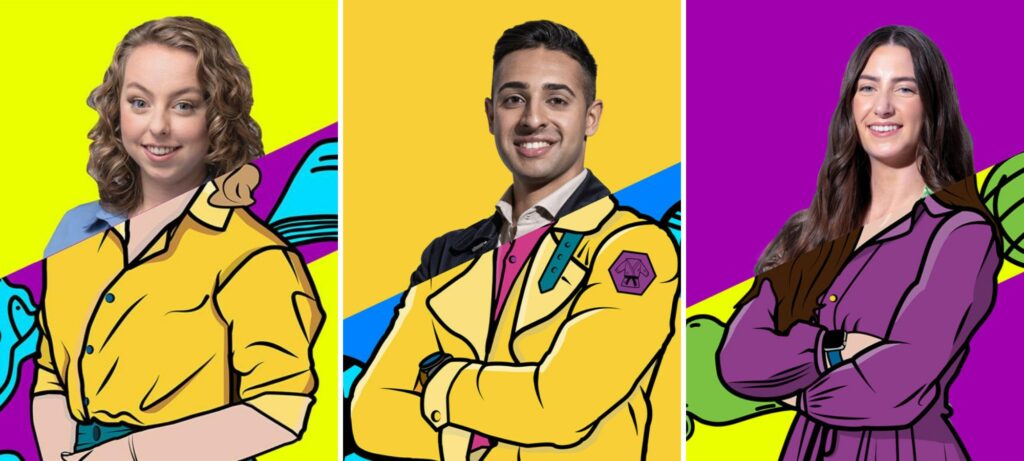
Situation
The construction industry’s image has remained virtually unchanged for years—dominated by hard-hats, high-vis, and steel beams rather than stories highlighting inclusion, innovation, collaboration or opportunity.
When Wates, a UK development, building and property maintenance company, needed to recruit 81 trainees across 21 roles and 28 locations, our priority was to stand out meaningfully in a crowded market. Despite its impressive 125-year legacy as an industry leader, Wates suffered from limited brand awareness.
Our objectives were clear:
- Raise overall awareness of the Wates organization
- Encourage a shift in industry perception
- Attract a more diverse range of candidates
Solution
With these hard-to-fill roles distributed nationwide, we needed a targeted approach. Based on research, we developed four distinct audience personas that represented our target demographics, which then informed our channel strategy and creative approach.
Authentic Messaging
We crafted a new compelling, narrative that brought together everything Wates stands for:
Creating tomorrow together.
Headlines embodied Wates’ core values, speaking directly to the impact individuals would have on the company’s legacy while highlighting key benefits of joining the organization.
Distinctive Visual Identity
We developed bold, vibrant visuals that stood apart from industry norms. Our creative approach demonstrated how professional and personal lives intertwine, visually representing work-life balance and inclusivity. A dedicated photoshoot allowed us to not only capture images but also collect employee stories that inspired a bespoke set of illustrations.

Inclusive Assessment Process
We redesigned the video interview process to ensure accessibility for all candidates. While maintaining a standardized process to ensure fairness, each of the 21 roles required careful manual shortlisting based on performance metrics. With 343 candidates advancing to assessment, we conducted virtual assessment centers over three weeks, with each role getting a dedicated day.
Results
The campaign generated exceptional engagement:
- 518,000 impressions (40% from TikTok)
- 7,918 applications
- 2,022 candidates invited to video interview
- 343 candidates progressed to assessment centers
- 30% female representation at application stage, increasing to 34% at offer stage
- 117 offers extended
“We’re delighted with the quality of candidate applications and how much the collaborative work ethic stood out.”
– Annette, Wates
At a Glance
- COMPANY
Wates - INDUSTRY
Building & Construction - PEOPLESCOUT SOLUTIONS
Talent Advisory - ABOUT WATES
The Wates Group was established in 1897 and is one of the leading privately-owned, construction, development and property services companies in the UK. They employ almost 6,000 people, working with a range of clients and partners from across the public and private sectors.








